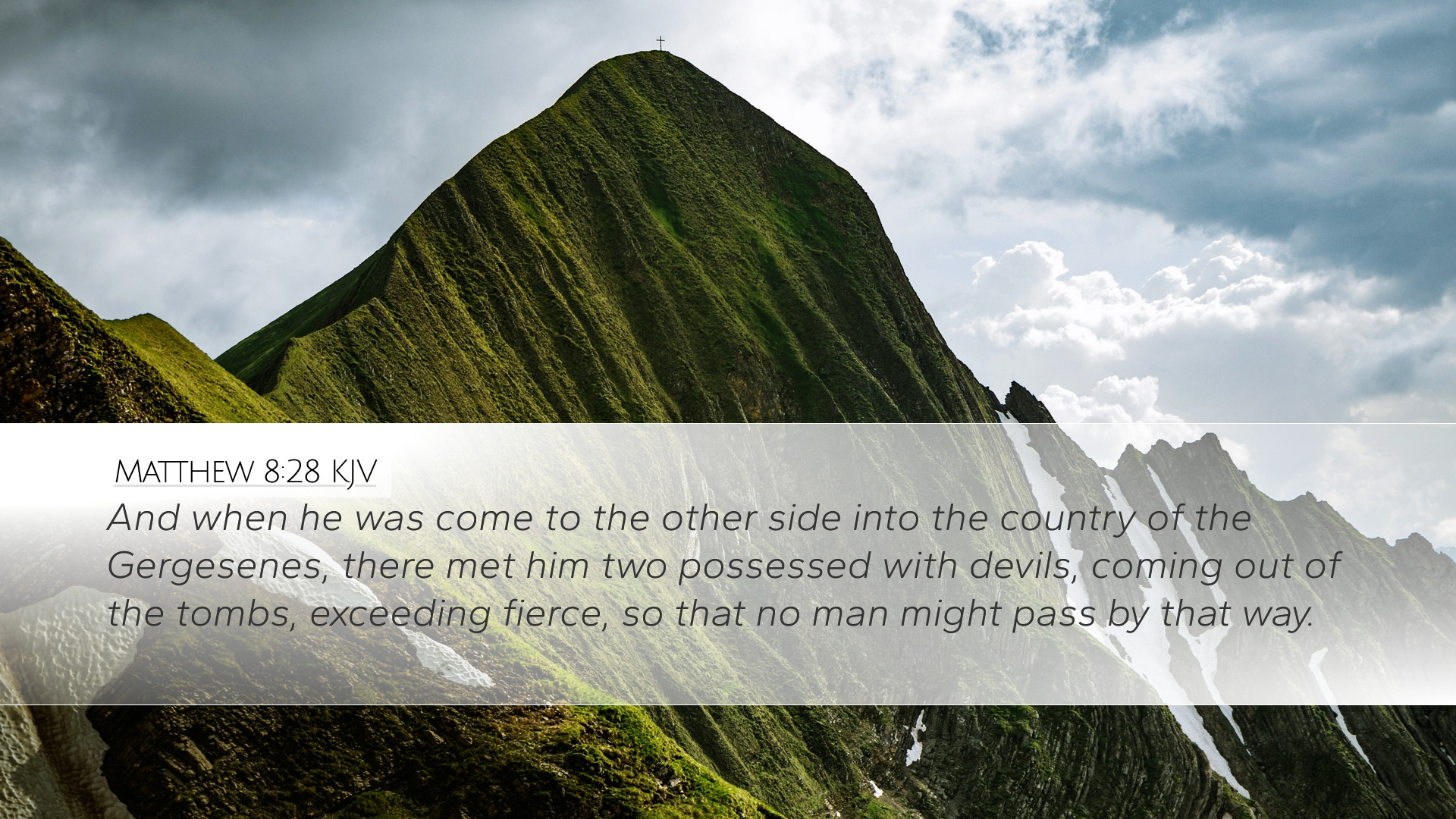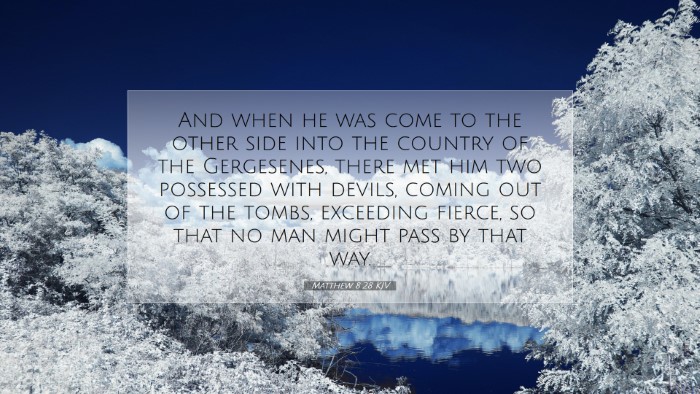Commentary on Matthew 8:28
Verse: Matthew 8:28 - "And when He was come to the other side into the country of the Gergesenes, there met Him two possessed with devils, coming out of the tombs, exceeding fierce, so that no man might pass by that way."
Introduction
This verse unfolds a profound episode in the ministry of Jesus, showcasing His authority over demons and illustrating the stark confrontation between light and darkness. The journey across the Sea of Galilee to the land of the Gergesenes signifies a pivotal moment where Jesus's ministry begins to reach the Gentiles, enhancing the understanding of His mission to save all humanity.
Context and Background
-
Geography: The Gergesenes, located on the eastern shore of the Sea of Galilee, provide a setting that represents the otherness from the Jewish territory, indicating the expansion of Jesus's mission.
-
Beliefs and Practices: This region, inhabited by Gentiles, likely adhered to pagan practices, thus intensifying the darkness of the demonic presence encountered by Jesus.
Insight from Commentaries
Matthew Henry
Henry notes the remarkable power and authority of Christ over unclean spirits. The very presence of these two possessed men reveals the magnitude of demonic influence that operates in a life devoid of the knowledge of God. He emphasizes the fierce nature of the demonic forces, which not only indicates the severity of the bondage but also sets the stage for Christ's sovereign act of deliverance.
Albert Barnes
Barnes highlights that the reference to two individuals points toward the truthfulness of the narrative. He argues that the existence of multiple witnesses strengthens the historical credibility of the encounter. Furthermore, Barnes explains that their dwelling in tombs symbolizes death both spiritually and physically, reflecting the grave consequences of sin and separation from God. The fierce demeanor of the possessed serves as a warning to those who challenge the divine authority.
Adam Clarke
Clarke draws attention to the cultural context of the region, noting that the Gergesenes lived in a place associated with death, a metaphor for the spiritual condition of those oppressed by sin. He remarks on the profound pity that Jesus shows towards these individuals, underscoring the compassion of the Savior who ventures into such dark places. Clarke also elaborates on the implications of Jesus’ authority, indicating that this encounter reveals Christ as the conqueror of evil, capable of restoring life where death reigns.
Theological Implications
-
Authority Over Evil: This passage illustrates Jesus' authority as the Son of God over darkness and demonic forces. It reassures believers of His power to liberate and redeem.
-
Mission to Gentiles: The crossing into the land of the Gergesenes symbolizes an important theological shift indicating that the Gospel is for all nations, challenging the exclusivity of Jewish salvation.
-
Compassion of Christ: In His action, we see a Savior who seeks out the lost, compelling us to reflect on our response to those who are suffering and in need of deliverance.
Application for Today
The desolation of the Gergesenes serves as a stark reminder of the spiritual battles faced by individuals today. Pastors, theologians, and students of the Word are encouraged to consider their own surroundings, recognizing the presence of spiritual warfare. Moreover, the passage invites believers to engage with those who are struggling with their own demons, whether literal or metaphorical, calling them into the light of Christ.
Conclusion
Matthew 8:28 stands as a testimony to the radical grace of God extended through Christ. It reassures the faithful that no one is beyond the reach of His healing hand, reinforcing the call for outreach to the marginalized and the wayward. The historical and theological depth of this passage augments its message, making it indispensable for those seeking to understand the complexities of faith and deliverance.


